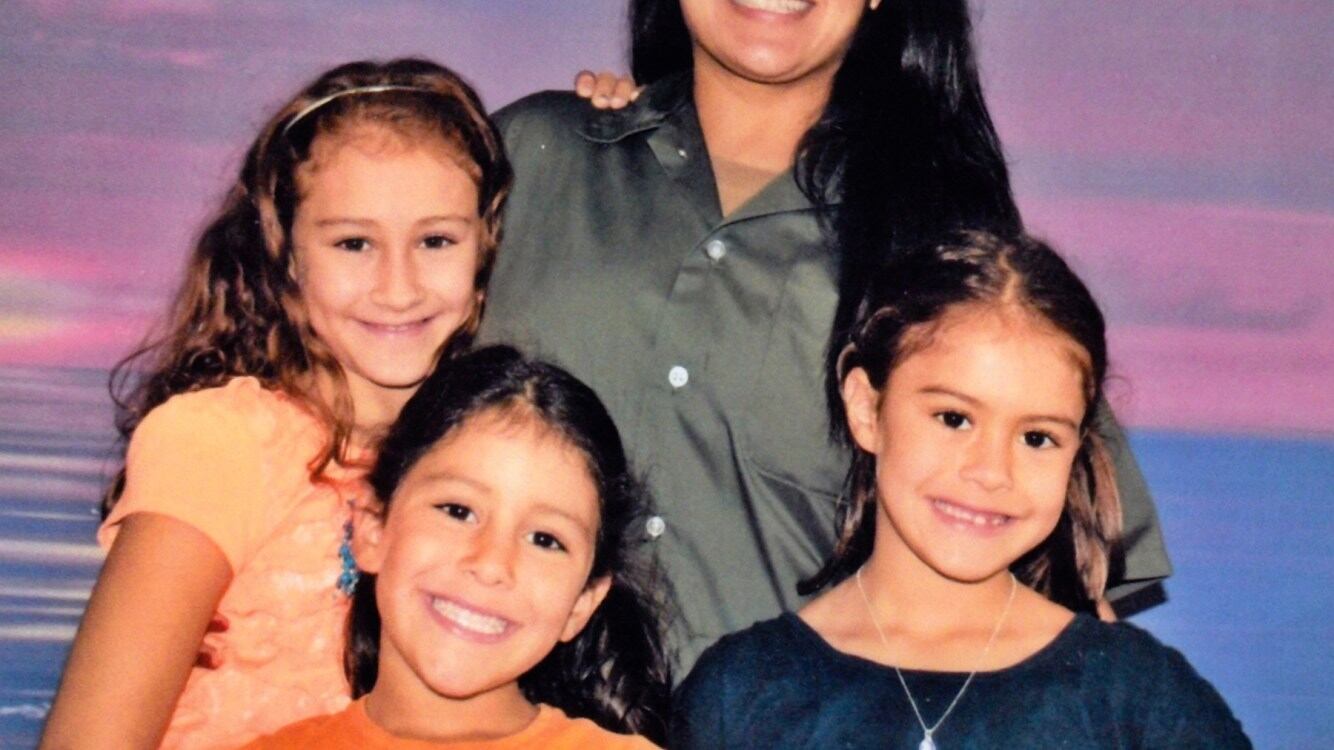Time, when you’re waiting for something you crave, moves gradually and then all at once. The Sentence, a new documentary premiering Monday on HBO, transmutes this strange, familiar tempo into affecting cinematic form as it chronicles the unjust jail time served by Cindy Shank, a wife and mother of three. “She went to prison. They did the time,” the film’s tagline reads. It’s true: Cindy may have been the one sentenced to 15 years away, but the reverberations of her absence on her parents, siblings, husband and most of all her three daughters—all ages five and below when Cindy was taken away—were equally devastating.
The Sentence is a highly-personal project, directed with warm intimacy by Cindy’s little brother Rudy Valdez, who stuck around as a close uncle and devoted guardian for the girls as their mom’s time behind bars crept by. The film starts off with Cindy already gone, a disembodied voice weeping quietly on speakerphone while she listens as her eldest daughter Autumn prepares for a dance recital. “This call is from a federal prison,” an automated voice announces before the call—a message that we hear countless times throughout the documentary reminding us that Cindy’s precious phone time (just 15 minutes allotted per week) is far from the motherhood experience she deserves.
We soon learn that, in 2002, Cindy was living with a boyfriend in Michigan when he was shot and killed outside their home, leaving in their apartment an overflowing supply of cocaine and illegal arms. Because she was uninvolved in his dealings, the police initially let Cindy go. And in the six years that followed, Cindy built a new life: She met her husband, Adam. She moved into a new house. She had three daughters: Autumn, Ava and Annalis. Then one day, the police seized her from her home and convicted her of conspiracy. She received 15 years behind bars: the minimum sentence for a charge of this nature.
An aspiring filmmaker (he says Cindy inspired his love of cinema), Rudy vowed to record all that he could of the girls’ growth while his sister was away. He also took the lead on pursuing appeals for her sentence, speaking to as many attorneys and experts on minimum sentencing laws as he could find. Testimonials from several of these authorities make their way into the film, providing some of the sole voices included in the project outside of core family members.
Mostly, the film unfolds as a chronicle of the years Cindy missed. Informal interviews with Cindy’s daughters—particularly Autumn—take us through the girls’ youth and preteen years. Always delighted to be in the presence of Uncle Rudy, the girls regard the camera with interest and matter-of-fact candor. “Sometimes they’ll say, ‘Why is she in Florida?’” Autumn reflects when Rudy gently asks whether her friends ever ask about her mom. “I’ll just say, ‘It’s something that only the family really needs to know about,’ and they won’t ask any more questions.” Since Cindy has been absent for the majority of the girls’ lives (for Annalis, her entire memory), the sisters mostly speak of their mom in terms of their excitement about visiting her, as well as long-term anticipation of her return.
For the adults, it’s a different story. Cindy’s parents can hardly mention her name without bursting into tears. During one spell in the midst of Cindy’s sentence, her father puts off visiting her for over six years. For him in particular, there seems to be an element of patriarchal pride at play; Cindy’s father’s impotence in the situation, his inability to help or rescue Cindy, bears on him like a personal failure. “I don’t know what else to do,” he chokes out over and over as Rudy offers solace. “I do the best I can.”
The Sentence unfolds in this way, with ever-tearful parents and daughters whose youthful glee and naïveté diminish as they grow older and more aware. This might seem like a manipulative way to chart a family tragedy, but within the film it feels appropriate—even necessary. We know that the camera isn’t being held by a stranger but a beloved uncle, which imbues each exchange with not only affection but also an irreproducible immediacy.
The particulars of Cindy’s case are left largely unexplained, and we’re never quite sure why she was convicted six years after the shooting. But the legal issues aren’t Rudy’s central concern. While The Sentence does seek to shed a light on the injustice of minimum sentencing laws, the poignant project is far more interested in the crime that attends them: the stolen time, the families torn apart and the love that’s forced to persist.





